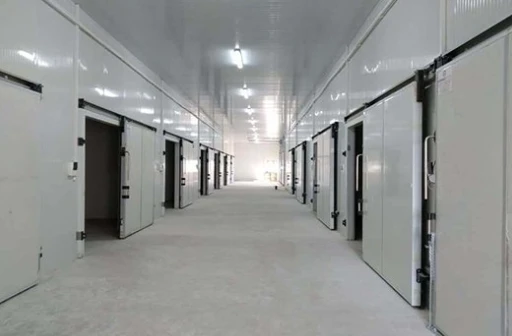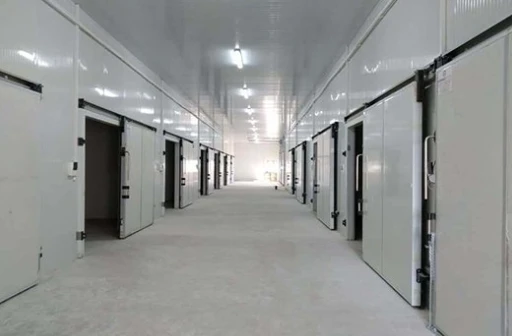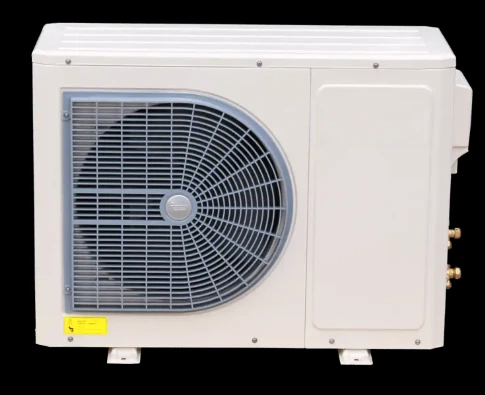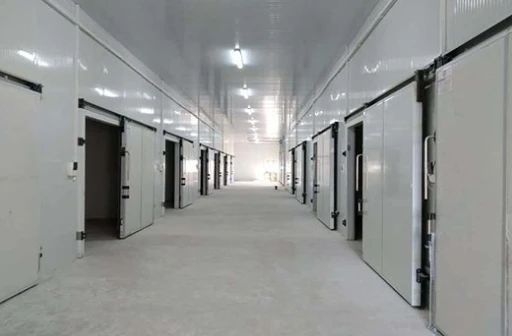High-Efficiency Screw Water Chiller for Industrial Cooling
Introduction to Advanced Water-Cooled Screw Chiller Systems
In the demanding landscape of industrial and commercial cooling, the screw water chiller stands as a cornerstone technology, delivering robust and efficient thermal management solutions. These sophisticated systems are engineered to provide precise temperature control for a multitude of processes, making them indispensable across various sectors. Utilizing a screw compressor, these chillers are renowned for their high cooling capacities, energy efficiency, and operational reliability, distinguishing them from other refrigeration technologies.
The fundamental principle involves the absorption of heat from a process or space using a refrigerant, which is then compressed by the screw mechanism and subsequently cooled by water. This water-cooled approach offers superior thermal exchange efficiency compared to air-cooled counterparts, especially in environments where ambient air temperatures are high or space for heat rejection is limited. As a vital component in modern industrial infrastructure, understanding the intricacies, applications, and advantages of a water cooled screw compressor chiller is paramount for optimizing operational efficiency and minimizing environmental impact.
This comprehensive overview delves into the technical aspects, industry trends, and practical applications of these powerful chilling units, equipping B2B decision-makers and engineers with the knowledge to make informed strategic investments.
Current Industry Trends and Market Evolution
The market for industrial cooling, particularly for the screw water chiller, is undergoing significant transformation driven by several key trends. Sustainability and energy efficiency remain at the forefront. Manufacturers are continuously innovating to improve Coefficient of Performance (COP) and Energy Efficiency Ratio (EER) values, often through the integration of variable speed drives (VSDs), advanced controls, and optimized heat exchanger designs. The adoption of eco-friendly refrigerants with lower Global Warming Potential (GWP), such as R-134a, R-513A, and R-1234ze, is also a critical trend, aligning with global environmental regulations and corporate sustainability goals.
Digitization and smart technology integration are also reshaping the industry. Modern water screw chiller systems frequently incorporate IoT capabilities, allowing for remote monitoring, predictive maintenance, and real-time data analysis. This enhances operational reliability, reduces downtime, and optimizes energy consumption. Data analytics can identify inefficiencies and recommend operational adjustments, leading to significant cost savings over the chiller's lifecycle. Furthermore, the demand for modular and scalable solutions is increasing, enabling businesses to expand their cooling capacity as needed without extensive system overhauls.
These trends reflect a broader industry movement towards more intelligent, efficient, and environmentally responsible cooling solutions, which directly impacts the design and deployment of water cooled screw compressor systems.
Manufacturing Process Flow of a Screw Water Chiller
The production of a high-quality screw water chiller is a meticulous process involving precision engineering and stringent quality control. Below is a detailed outline of the typical manufacturing process, emphasizing key stages:
1. Component Sourcing & Fabrication
- ✓ Compressor Units: High-efficiency screw compressors are sourced from reputable suppliers. Key components, such as rotors, are often forged from high-strength alloy steels and then CNC machined to micron-level tolerances for optimal efficiency and minimal wear.
- ✓ Heat Exchangers (Evaporator & Condenser): Shell-and-tube or plate heat exchangers are fabricated using high-grade materials like copper (tubes) and steel (shell). Tube sheets are typically CNC drilled for precision alignment.
- ✓ Piping & Valves: Industrial-grade copper or steel piping, robust valves, and expansion devices are selected based on design specifications and refrigerant compatibility.
- ✓ Structural Frame: Heavy-duty steel frames are precision-cut, welded, and treated (e.g., powder coating for corrosion resistance) to provide a stable and durable foundation for all components.
2. Assembly & Integration
- ✓ Base Frame Assembly: The main frame is assembled, ensuring structural integrity and proper alignment.
- ✓ Component Mounting: Compressors, evaporators, and condensers are securely mounted onto the frame.
- ✓ Refrigerant Piping: High-pressure piping is meticulously installed, welded, and brazed to create the refrigerant circuit. This stage is critical for leak prevention.
- ✓ Electrical & Control Wiring: Advanced control panels, sensors, and electrical components are wired and integrated. This often includes programmable logic controllers (PLCs) for intelligent operation.
3. Testing & Quality Assurance
- ✓ Pressure Testing: The entire refrigerant circuit undergoes high-pressure nitrogen testing to detect leaks, adhering to standards like ASME Boiler and Pressure Vessel Code.
- ✓ Vacuum Evacuation & Dehydration: The system is evacuated to remove non-condensable gases and moisture, critical for system longevity and efficiency.
- ✓ Refrigerant Charging: Precise amounts of specified refrigerant (e.g., R-134a) are charged into the system.
- ✓ Performance Testing: Each chiller undergoes rigorous functional and performance testing in a dedicated test facility. This includes load testing, power consumption measurement, sound level checks, and verification of control logic against design specifications (e.g., ISO 9001, ANSI/AHRI 550/590).
- ✓ Vibration Analysis: Ensuring smooth operation and identifying potential issues with rotating components.
4. Finishing & Packaging
- ✓ Insulation & Protection: All cold surfaces and pipes are insulated to prevent condensation and improve thermal efficiency. Exterior panels are fitted and painted.
- ✓ Documentation: Comprehensive manuals, wiring diagrams, and test reports are prepared.
- ✓ Packaging & Shipping: Units are crated or prepared for safe transport, often with protective coverings.
The selection of materials is critical. For instance, high-strength cast iron or alloy steel is typically used for compressor casings, while copper is chosen for heat exchanger tubes due to its excellent thermal conductivity and corrosion resistance. These choices, coupled with advanced manufacturing techniques like CNC machining for precise component fabrication and meticulous welding for leak-proof connections, contribute to the extended service life, often exceeding 15-20 years with proper maintenance, of a well-engineered screw water chiller. Compliance with international standards such as ISO 9001 for quality management and ISO 14001 for environmental management is inherent in this process.
Target industries benefiting from these robust manufacturing standards include petrochemicals, metallurgy, pharmaceuticals, food and beverage, and large-scale water supply & drainage systems, where reliability, energy efficiency, and corrosion resistance are paramount.
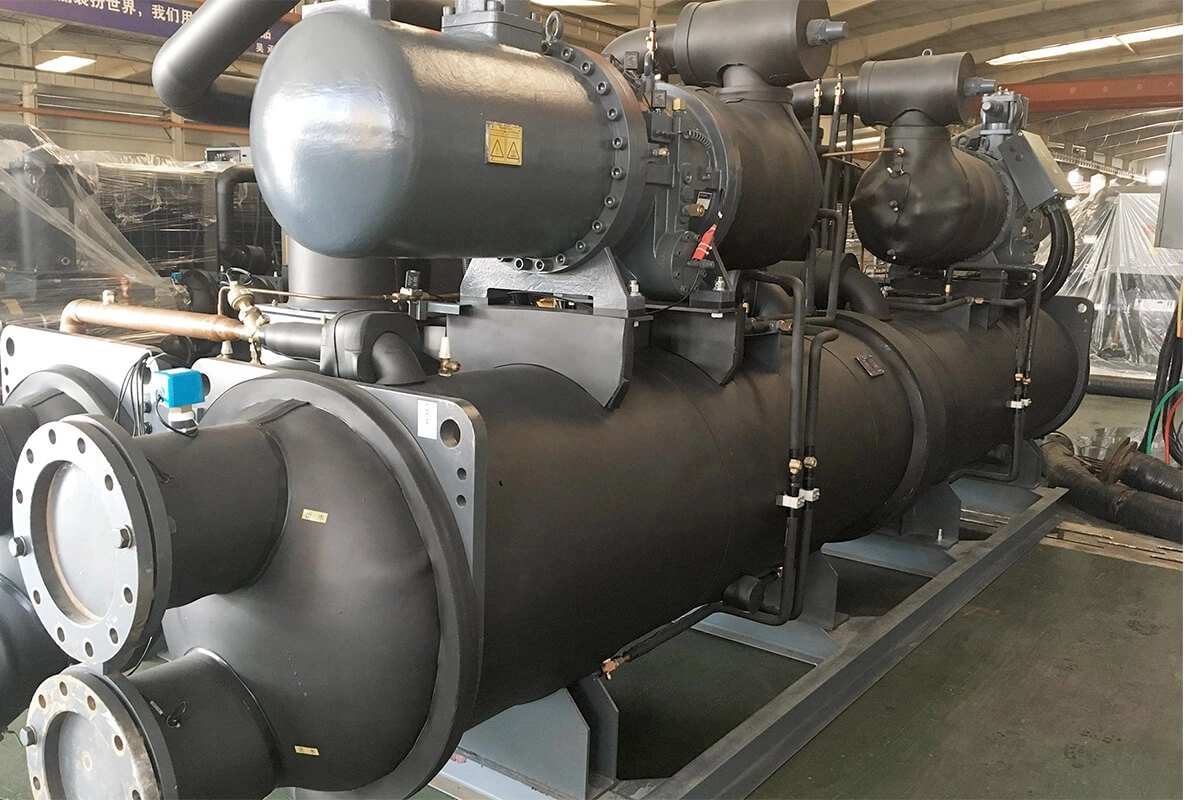
Figure 1: Internal components of a high-performance screw water chiller, showcasing precision engineering.
Technical Specifications of a Water-Cooled Screw Chiller
Understanding the technical parameters is crucial for selecting the appropriate water cooled screw compressor chiller for specific applications. The performance of these units is governed by a range of factors, from cooling capacity to power consumption and refrigerant type.
| Parameter | Unit | Range/Value | Description |
|---|---|---|---|
| Cooling Capacity | kW / Tons | 100 - 3000 kW (30 - 850 Tons) | The heat removal rate; often rated at standard conditions (e.g., Leaving Chilled Water Temp 7°C, Condenser Water Temp 30°C). |
| Compressor Type | - | Single/Dual Screw, Semi-hermetic/Open | Specifies the type and configuration of the screw compressor. |
| Refrigerant Type | - | R-134a, R-407C, R-513A, R-1234ze | Environmentally friendly refrigerants with low ODP and GWP. |
| Power Supply | V/Ph/Hz | 380-415V/3Ph/50Hz, 460V/3Ph/60Hz | Standard industrial electrical specifications. |
| COP (Coefficient of Performance) | - | Typically 4.5 - 6.5 | Ratio of cooling output to power input, indicating efficiency. |
| EER (Energy Efficiency Ratio) | - | Typically 15 - 22 (Btu/Wh) | Similar to COP, often used in North America. |
| Chilled Water Outlet Temperature | °C / °F | -10°C to 20°C (14°F to 68°F) | Operating range for chilled water temperature. |
| Condenser Water Inlet/Outlet Temp | °C / °F | 25°C/30°C (77°F/86°F) standard | Typical operating temperatures for cooling tower water. |
| Control System | - | Microprocessor-based, PLC, BMS integration | Advanced controls for optimal performance and connectivity. |
| Noise Level | dB(A) | Typically 70 - 85 dB(A) at 1m | Operational noise output. |
| Protection Features | - | High/Low Pressure, Overload, Anti-freeze, Phase loss | Safety mechanisms for extended lifespan and reliable operation. |
These specifications highlight the robust design and engineering precision inherent in a water cooled screw chiller. The ability to maintain high COP/EER values across a wide operating range, combined with sophisticated control systems, makes these chillers a cost-effective choice for long-term industrial cooling needs. Notably, the semi-hermetic screw compressor design minimizes refrigerant leaks and requires less maintenance, contributing to lower lifecycle costs and environmental impact.
Versatile Application Scenarios
The adaptability and robust performance of a water screw chiller make it suitable for an extensive range of industrial and commercial applications. Its capacity for high cooling loads and precise temperature control is critical in processes where thermal stability directly impacts product quality or operational continuity.
- Plastics Manufacturing: Essential for cooling molds, hydraulic oil, and other equipment in injection molding, extrusion, and blow molding processes, preventing product defects and accelerating cycle times.
- Food & Beverage Industry: Used for process cooling during fermentation, pasteurization, bottling lines, and storage, maintaining optimal temperatures to ensure product safety and quality.
- Chemical & Pharmaceutical Processing: Critical for exothermic reaction control, solvent recovery, and maintaining precise temperatures for sensitive chemical synthesis and drug manufacturing. Energy saving is paramount in these energy-intensive operations.
- HVAC for Large Commercial Buildings: Providing chilled water for air conditioning systems in airports, hotels, hospitals, data centers, and large office complexes, ensuring comfortable indoor environments.
- Metal Processing: Cooling of induction furnaces, quenching baths, and machining equipment to manage heat generated during operations, improving tool life and product consistency.
- Power Generation: Used in turbine inlet air cooling and auxiliary system cooling to enhance efficiency and reduce thermal stress on equipment.
- Data Centers: Maintaining strict environmental control for server racks, preventing overheating and ensuring continuous operation of critical IT infrastructure.
- Oil & Gas Industry: Cooling of process fluids, natural gas liquefaction, and cooling of equipment in refineries and offshore platforms, where corrosion resistance is vital due to harsh environments.
In these scenarios, the ability of a screw water chiller to deliver stable, efficient, and reliable cooling directly translates into improved product quality, reduced operational costs, and enhanced system longevity. The inherent energy saving potential, especially with variable speed drives, makes them an attractive investment for industries focused on sustainability.
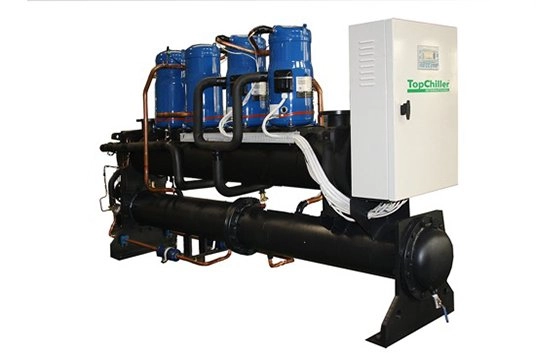
Figure 2: A typical industrial installation of a water cooled screw chiller, integrated into a plant's cooling infrastructure.
Technical Advantages and Performance Excellence
The choice of a water cooled screw compressor system often comes down to its compelling technical advantages over other chiller technologies. These benefits translate directly into lower operating costs, enhanced reliability, and greater operational flexibility for industrial users.
- High Energy Efficiency (EER/COP): Screw compressors inherently offer excellent part-load efficiency due to their continuous capacity control mechanisms (e.g., slide valve or variable speed drives). This allows the chiller to match cooling loads precisely, leading to significant energy savings over its operational lifespan, especially in applications with fluctuating demand.
- Robustness and Reliability: With fewer moving parts compared to reciprocating compressors and continuous compression, screw compressors are known for their exceptional durability and long service life. This minimizes downtime and maintenance requirements, crucial for continuous industrial processes.
- Low Noise and Vibration: The rotary motion of screw compressors results in smoother operation with less vibration and lower noise levels compared to piston-driven systems, making them suitable for installations sensitive to acoustic emissions.
- Precise Temperature Control: Advanced microprocessor controls coupled with the inherent modulation capabilities of screw compressors enable very tight control over chilled water temperatures, which is critical for sensitive industrial processes.
- Versatility with Refrigerants: Modern screw chillers can operate with a variety of low GWP refrigerants, offering flexibility in meeting environmental regulations and optimizing performance for specific operating conditions.
- Reduced Footprint: Water-cooled systems, by design, require less space for heat rejection compared to air-cooled units, making them ideal for urban environments or facilities with limited outdoor space.
- Lower Condensing Temperatures: Water as a cooling medium is generally more effective at rejecting heat than air, allowing the condenser to operate at lower temperatures and pressures. This directly improves compressor efficiency and extends its life.
These advantages underscore why the screw water chiller remains a preferred solution for mission-critical cooling applications demanding high performance and long-term cost-effectiveness.
Vendor Comparison and Selection Criteria
When evaluating suppliers for a screw water chiller, several critical factors must be considered beyond just the initial purchase price. A strategic approach involves assessing the total cost of ownership (TCO) and aligning the vendor's capabilities with specific operational requirements.
| Criterion | Description | Impact on TCO & Operation |
|---|---|---|
| Energy Efficiency (EER/IPLV) | Indicates performance under full and part-load conditions (IPLV - Integrated Part Load Value). | Directly impacts electricity consumption and operational costs; higher values mean lower TCO. |
| Compressor Technology | Type of screw compressor (e.g., single/twin, semi-hermetic, oil-free, VSD). | Affects reliability, maintenance, and specific application suitability (e.g., oil-free for sensitive processes). |
| Refrigerant Options | Availability of low GWP and HFC-free refrigerants. | Ensures compliance with future environmental regulations and reduces carbon footprint. |
| Control System & BMS Integration | Sophistication of the control panel, remote monitoring, and compatibility with building management systems. | Enables smart operation, predictive maintenance, and seamless integration into existing infrastructure. |
| Service and Support Network | Availability of local service technicians, spare parts, and remote diagnostic capabilities. | Minimizes downtime, ensures rapid issue resolution, and extends equipment lifespan. |
| Customization Capabilities | Ability to tailor the chiller to specific footprint, cooling load, or environmental conditions. | Ensures optimal fit and performance for unique industrial requirements. |
| Certifications & Authoritative References | Compliance with international standards (e.g., CE, UL, AHRI, ISO), verifiable test data. | Guarantees product quality, safety, and certified performance, building trust. |
A thorough vendor comparison, focusing on these criteria, allows businesses to select a partner who not only provides a high-quality water cooled screw compressor chiller but also offers comprehensive support, ensuring optimal performance and maximum return on investment throughout the chiller's operational life. Partnering with vendors holding certifications like ISO 9001 and having a proven track record (e.g., 20+ years in the industry) provides an added layer of assurance regarding product quality and expertise.
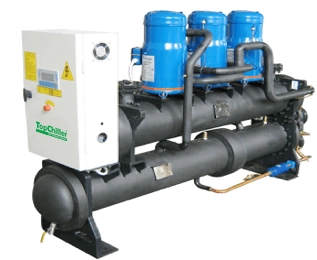
Figure 3: Advanced control panel for a water screw chiller, enabling precise operation and system monitoring.
Customized Solutions for Unique Industrial Needs
While standard screw water chiller models offer broad applicability, many industrial processes require highly specialized cooling solutions. Leading manufacturers understand this necessity and provide extensive customization options to precisely match the unique demands of each application. This capability is a hallmark of truly experienced and authoritative suppliers.
Customization can encompass several aspects:
- Cooling Capacity and Temperature Range: Tailoring the chiller to specific load profiles, including ultra-low temperature requirements or high-flow applications. This often involves specific compressor sizing and refrigerant choices.
- Material Compatibility: For corrosive environments or specific process fluids, custom material selections for heat exchangers (e.g., stainless steel, titanium) and piping (e.g., PVC, specific alloys) ensure long-term durability and corrosion resistance.
- Footprint and Configuration: Designing units to fit into confined spaces, including modular or split-system configurations, or integrating them into existing plant layouts.
- Control System Integration: Developing bespoke control logic, integrating with proprietary Building Management Systems (BMS) or Distributed Control Systems (DCS), and providing specific communication protocols (e.g., Modbus, BACnet).
- Redundancy and Reliability Features: Incorporating redundant components (e.g., dual compressors, pumps) or N+1 configurations to ensure uninterrupted cooling for critical applications.
- Environmental Conditions: Engineering chillers for extreme ambient temperatures, high altitude operation, or explosion-proof requirements in hazardous areas.
These tailored solutions, often developed through close collaboration between the client and the manufacturer's engineering team, ensure that the water cooled screw compressor chiller operates at peak efficiency and reliability, perfectly aligning with the unique demands of the industrial process. Such bespoke solutions highlight the expertise and experience of the vendor in delivering complex cooling projects.
Application Case Studies: Real-World Impact
Examining real-world applications provides tangible evidence of the efficiency and reliability of a screw water chiller. These case studies demonstrate how optimized cooling solutions translate into operational excellence.
Case Study 1: Large Pharmaceutical Manufacturing Plant
A major pharmaceutical facility required precise temperature control for several reactors and cleanroom environments. Their existing cooling system struggled with fluctuating loads, leading to energy inefficiencies and occasional process disruptions.
- ● Solution: Installation of a dual-compressor water cooled screw chiller with VSD technology, capable of delivering -5°C chilled water. The system was integrated with the plant's existing BMS.
- ● Results: Achieved a 28% reduction in annual energy consumption due to superior part-load efficiency. Chilled water temperature stability improved to within ±0.5°C, eliminating process excursions and enhancing product consistency. Operational reliability increased significantly over 5 years of continuous service.
Case Study 2: High-Density Data Center
A rapidly expanding data center faced challenges with heat dissipation from its high-density server racks, leading to increasing operational costs and risk of downtime.
- ● Solution: Deployment of multiple modular water cooled screw compressor chiller units, configured for N+1 redundancy. The chillers utilized R-134a refrigerant and featured advanced controls for optimized free cooling integration during cooler months.
- ● Results: Achieved a PUE (Power Usage Effectiveness) improvement of 0.2 points (e.g., from 1.6 to 1.4), resulting in millions of dollars in annual energy savings. The modular design allowed for seamless capacity expansion as the data center grew, minimizing initial capital expenditure and future disruptions.
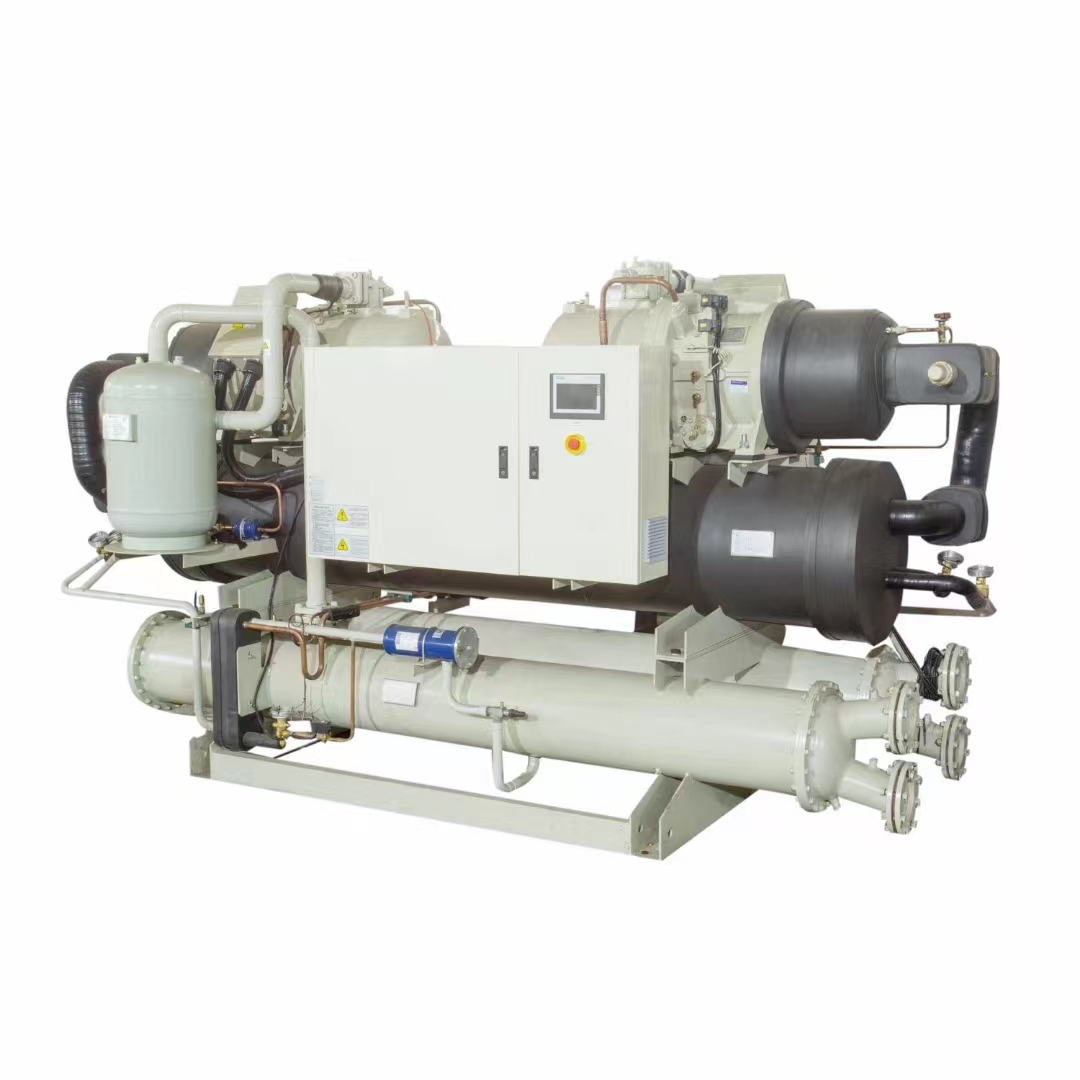
Figure 4: A comprehensive water cooled screw chiller installation in an industrial setting, demonstrating robust integration.
Trust & Transparency: FAQ, Lead Time, Warranty, and Support
Building trust with B2B clients necessitates transparency in all aspects, from product specifications to after-sales support. Here, we address common questions and operational details concerning the screw water chiller.
Frequently Asked Questions (FAQ)
A: With proper installation, regular maintenance, and quality components, a well-manufactured screw water chiller can have an operational lifespan of 15-20 years or more. Key factors include compressor quality, preventative maintenance schedule, and operating conditions.
A: Screw chillers offer excellent part-load efficiency, often outperforming centrifugal chillers at lower loads. They generally provide higher efficiency than scroll chillers for medium to large capacities and are known for robust performance across a wider range of operating conditions. Centrifugal chillers typically excel in very large capacities at full load.
A: Regular maintenance includes checking refrigerant levels, lubricating compressor bearings, cleaning condenser tubes (to prevent scaling and fouling), inspecting electrical connections, and calibrating controls. Annual or semi-annual service by certified technicians is recommended to ensure peak performance and longevity.
A: Absolutely. Most modern water cooled screw compressor chiller units come with advanced control systems that support common communication protocols such as Modbus, BACnet, and LonWorks, allowing for seamless integration with a facility's BMS for centralized monitoring and control.
Lead Time & Fulfillment
Standard models of water cooled screw chillers typically have a lead time of 6-10 weeks from order confirmation to shipment, depending on manufacturing schedules and component availability. Customized solutions may require 12-18 weeks due to additional engineering and fabrication processes. We work closely with clients to provide accurate timelines and regular updates throughout the production cycle.
Warranty Commitments
All our screw water chiller units come with a standard 12-month warranty on parts and a 24-month warranty on the compressor from the date of commissioning or 18 months from delivery, whichever comes first. Extended warranty options and service contracts are available to provide additional peace of mind and long-term operational assurance.
Customer Support Information
Our dedicated after-sales support team is available 24/7 for technical assistance, troubleshooting, and spare parts inquiries. We offer remote diagnostics, on-site service by certified technicians, and comprehensive training programs for client personnel to ensure optimal operation and maintenance of your water cooled screw compressor chiller. Our global network of service partners ensures prompt and reliable support wherever your operations are located.
Conclusion
The screw water chiller represents a pinnacle of industrial cooling technology, offering unparalleled efficiency, reliability, and versatility for a wide array of demanding applications. Its continuous evolution, driven by advancements in compressor technology, eco-friendly refrigerants, and intelligent control systems, ensures its continued relevance in the push towards sustainable and optimized industrial operations. By understanding its technical merits, application potential, and the robust manufacturing processes that define its quality, B2B decision-makers can confidently invest in these systems to secure long-term operational advantages and contribute to a more energy-efficient future.
References
- ASHRAE Handbook—HVAC Systems and Equipment. (2020). American Society of Heating, Refrigerating and Air-Conditioning Engineers.
- AHRI Standard 550/590 (I-P)—Performance Rating of Water-Chilling and Heat Pump Water-Heating Packages Using the Vapour Compression Cycle. (2020). Air-Conditioning, Heating, and Refrigeration Institute.
- European Partnership for Energy and the Environment (EPEE) & European Heating Industry (EHI). (2019). Refrigerant Report.
- The Engineering ToolBox. (n.d.). Chiller Efficiency (COP and EER). Retrieved from https://www.engineeringtoolbox.com/chillers-efficiency-d_1965.html
- Industrial Refrigeration Handbook. (2007). Wilbert F. Stoecker, J. W. Stoecker. McGraw-Hill Education.



